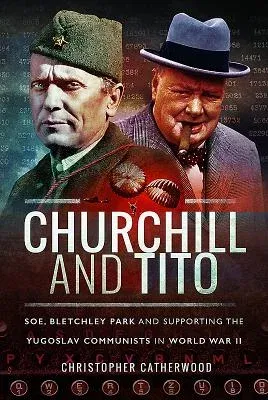One of Churchill's most controversial decisions during the Second World
War was to switch SOE support in Yugoslavia in 1943 from the Cetniks
loyal to the exiled Royal Government to backing Tito and his Communist
Partisan guerrillas. It led to a Communist regime in Yugoslavia which
lasted until Tito's death in 1980, and the nationalistic sentiments he
had suppressed exploding into ethnic violence in the Balkan wars of the
1990s.
Until now the story has been that SOE was infiltrated by Communists in
Cairo and that Fitzroy Maclean, Churchill's personal delegate to Tito,
was hoodwinked by the Communist leader, and that Churchill was duped
into abandoning the royalists. However, the recently deposited papers of
Sir Bill Deakin, Churchill's former assistant and an SOE operative in
Yugoslavia, reveal that the decision was based upon absolutely solid
evidence and in Britain's best military interests.
The official history of SOE in Yugoslavia was never written, but Deakin
was the main adviser to the person deputed to write it - and Christopher
Catherwood was the first person to examine the papers deposited in
Washington. These papers reveal that Churchill made his decision based
on evidence not just from SOE, but also from MI3, SIS and SIGINT at
Bletchley Park.
Christopher Catherwood can now demonstrate that one of Churchill's most
significant and consequential decisions of the Second World War was not
the terrible mistake that historians have portrayed it.

